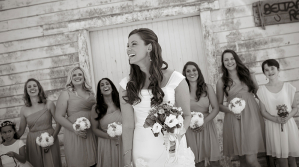
Brittany Maynard, the 29 year old cancer patient who became the face of the "right to die" movement over the past few months, ended her own life Saturday night at her home in Portland, Oregon surrounded by friends and family.
"Goodbye to all my dear friends and family that I love," she wrote in a final Facebook post. "Today is the day I have chosen to pass away with dignity in the face of my terminal illness, this terrible brain cancer that has taken so much from me ... but would have taken so much more."
"The world is a beautiful place, travel has been my greatest teacher, my close friends and folks are the greatest givers. I even have a ring of support around my bed as I type ... Goodbye world. Spread good energy. Pay it forward!"
After discovering she only had 6 months to live due to an aggressive form of brain cancer, Maynard made headlines earlier this year after announcing she intended to die - under Oregon's Death with Dignity Act - by taking a lethal combination of medications.
On Oct. 6, she launched an online video campaign with Compassion & Choices, an end-of-life choice advocacy organization, to fight for expanding death with dignity laws nationwide. However, in an interview with CBS, Maynard emphasized her desire to live.
"I don't want to die," Maynard told CBS. "If anyone wants to hand me, like, a magical cure and save my life so that I can have children with my husband, you know, I will take them up on it."
"For people to argue against this choice for sick people really seems evil to me," she later told PEOPLE. "They try to mix it up with suicide and that's really unfair, because there's not a single part of me that wants to die. But I am dying."
During her last months, Maynard traveled to Alaska, British Colombia and Yellowstone National Park with her husband and parents and explored more local attractions like Olympic National Park in Washington.
On Oct. 21, she and her family explored the Grand Canyon--a place she had wanted to see for a long time.
"It was breathtakingly beautiful," she said in a statement.
However, the next few days became "increasingly difficult," Maynard said, as she began to have debilitating seizures and stroke-symptoms.
"It was a harsh reminder that my symptoms continue to worsen as the tumor runs its course," she told People shortly before ending her own life.
Prior to her death, many Christians, including Joni Eareckson Tada, an internationally known advocate for the disability community, encouraged Maynard to reconsider her decision.
"Like many, my heart broke when I watched Brittany's video in which she outlined her plans to die through physician-assisted suicide," wrote Tada, who has been a quadriplegic for 47 year and has also survived breast cancer.
"No one - absolutely no one - welcomes the pain that dealing with a terminal disease invariably brings, and it's clear that this young woman is firm in her convictions," she noted in a statement.
"But if I could park my wheelchair beside her, I would tell her how the love of Jesus has sustained me through my chronic pain, quadriplegia and cancer. I don't want her to wake up on the other side of her tombstone only to face a dark, grim existence without life and joy; that is, without God. There's only one person who has transformed the landscape of life-after-death, and that is Jesus, the One who conquered the grave, opening the path to life eternal. Three grams of phenobarbital in the veins will only provide a temporary reprieve. It is not the answer for the most important passage of her life," she added.
Maynard, however, saw things from a different perspective.
"Cancer is ending my life," she said at the time.
"I am choosing to end it a little sooner and in a lot less pain and suffering."
"... I've realized there's a bit of the legacy I'm creating this way and I'm not ashamed of that. I'm not ashamed to attach my name to what I think is a right that should belong to all terminally ill Americans. I really do."






